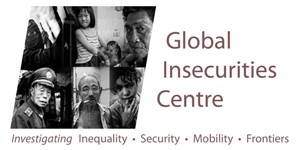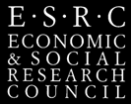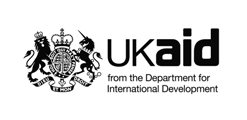 Risk Management and Aid Culture in Sudan and Afghanistan
Risk Management and Aid Culture in Sudan and Afghanistan
A two-year ESRC/DFID Joint Scheme-funded research project led by the Global Insecurities Centre, University of Bristol (Professor Mark Duffield) and the Humanitarian Policy Group, Overseas Development Institute (Dr Sarah Collinson)
October 2010 – September 2012
Background
The past two decades have witnessed an expansion in the number and range of aid agencies working in conflict-affected fragile states as the aid industry has become increasingly engaged in ambitious programmes of social and political transformation that encompass recovery and reconstruction, political stabilisation, peace-building, state-building, humanitarian relief, conflict reduction and longer-term development. To implement these programmes, policy makers have encouraged the integration of international aid and political activities to create 'comprehensive' or ‘integrated’ multi-agency policy environments.
While couched in terms of ‘post-conflict’ engagement in many contexts, aid agencies are in fact often working in situations of continuing violence and insecurity. There has been considerable debate on the policy challenges faced in designing and implementing aid programmes in these environments, but there is little research on how aid agencies are responding to the security risks that they face themselves and the implications of this for the implementation and impacts of their aid programmes in practice. What evidence exists suggests an expansion of field-security and risk-awareness training, a growing influence of security experts in programme design, and increased institutional risk-aversion including insurance-based restrictions on movement and residence.
Project aim and geographical focus
This research project aims to investigate how risk management and enhanced threat awareness among UN agencies and international NGOs challenge their ability to achieve key policy and programme goals in fragile states affected by conflict and violence. The project is focused on South Sudan and Afghanistan. South Sudan is broadly understood by the majority of aid actors as a situation of tentative ‘post-conflict’ recovery, while international aid in Afghanistan is focused in areas affected by continuing violent conflict. Varying security conditions and responses in both countries have implications for the aid agencies’ geographical presence and coverage, and their ability to respond to conflict dynamics and to support ambitious policy goals.
Research questions
- In fragile states where comprehensive programming is the goal, what are the implications of enhanced risk management and changing organisational cultures among UN agencies and international NGOs?
- How is risk understood, negotiated and managed between international agencies and national NGOs, private security companies, and the military?
- How does risk management affect programme decision making, including geographical coverage and relations with beneficiary groups?
- How does aid bunkering affect the ability of aid agencies to act on conflict dynamics?
- Hoes does the existence of a secure aid archipelago shape the dynamics of interagency co-ordination?
The research will be carried out principally through ethnographic methodologies, including in-depth interviewing; semi-structured interviews; focus group meetings; multi-stakeholder workshops; participant observation and conversation. The main research sites in the two countries will be the international 'gated communities' in urban areas, the fortified aid compounds and the exclusive means of transport that mesh these sites into a secure 'archipelago' of international aid. The researchers will examine how risk management defines and maintains the archipelago's spatial boundaries and shapes outcomes on the ground. UN agencies, international NGOs and local NGOs will be the main focus, but the research will also extend to donor representatives, government bodies, other multilateral organisations, private security companies and military actors.


